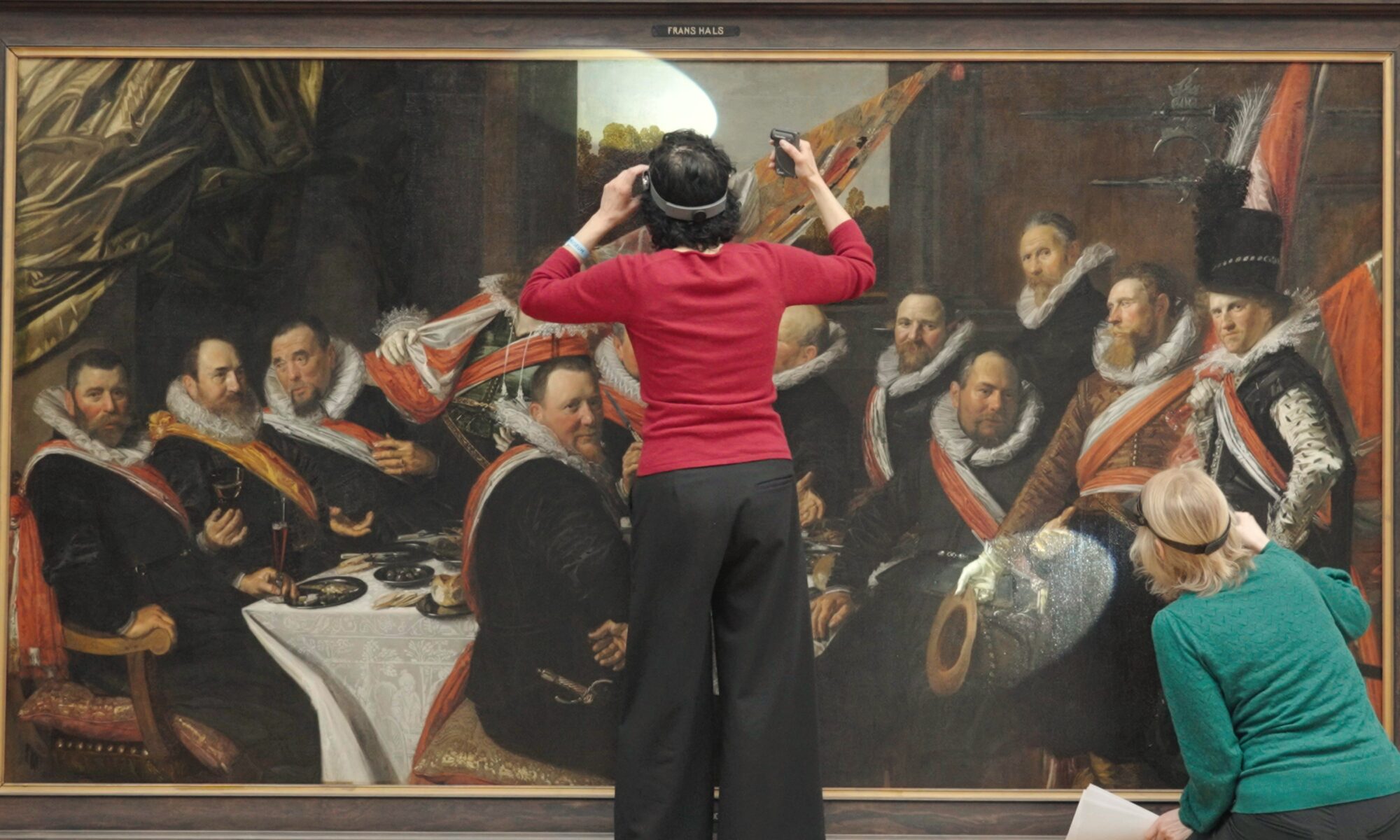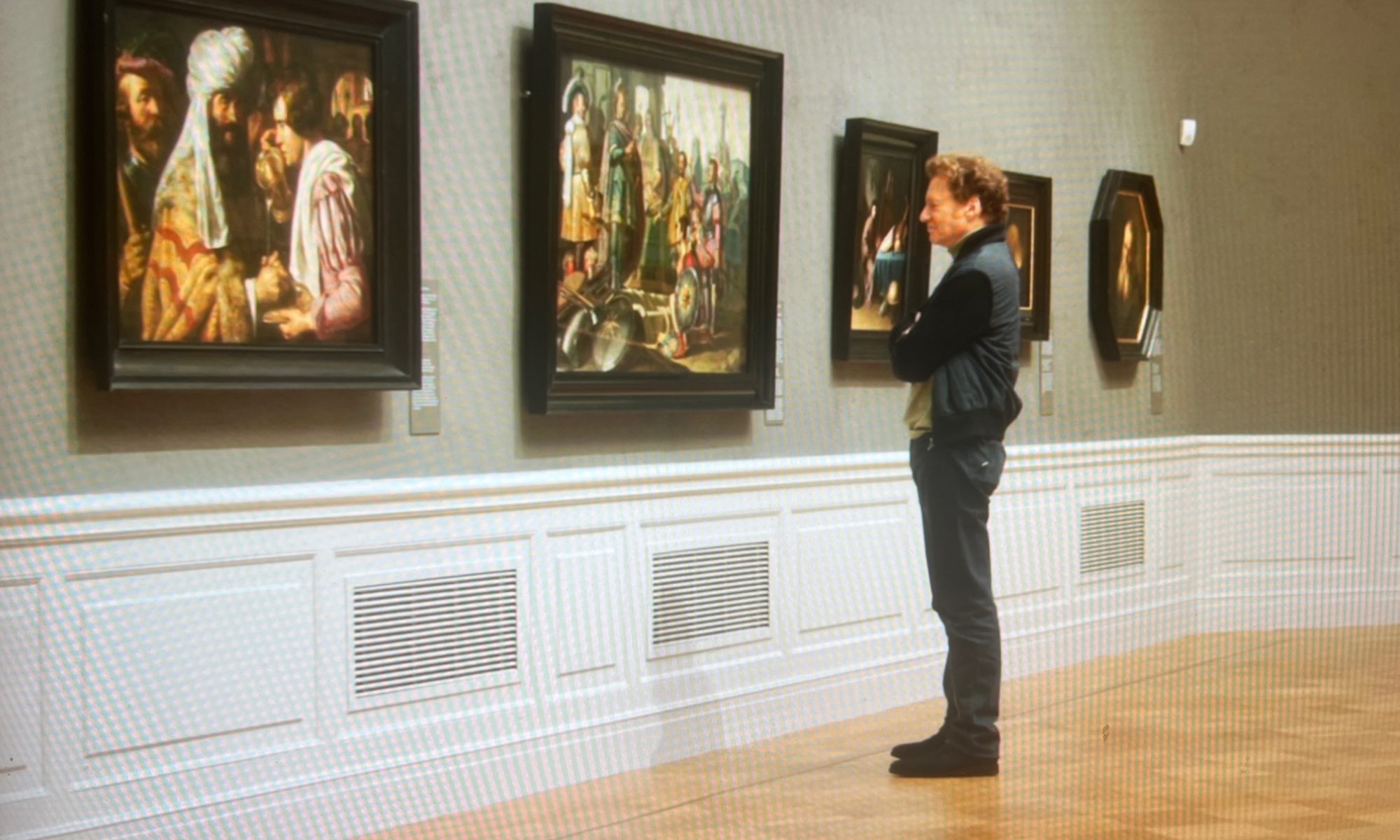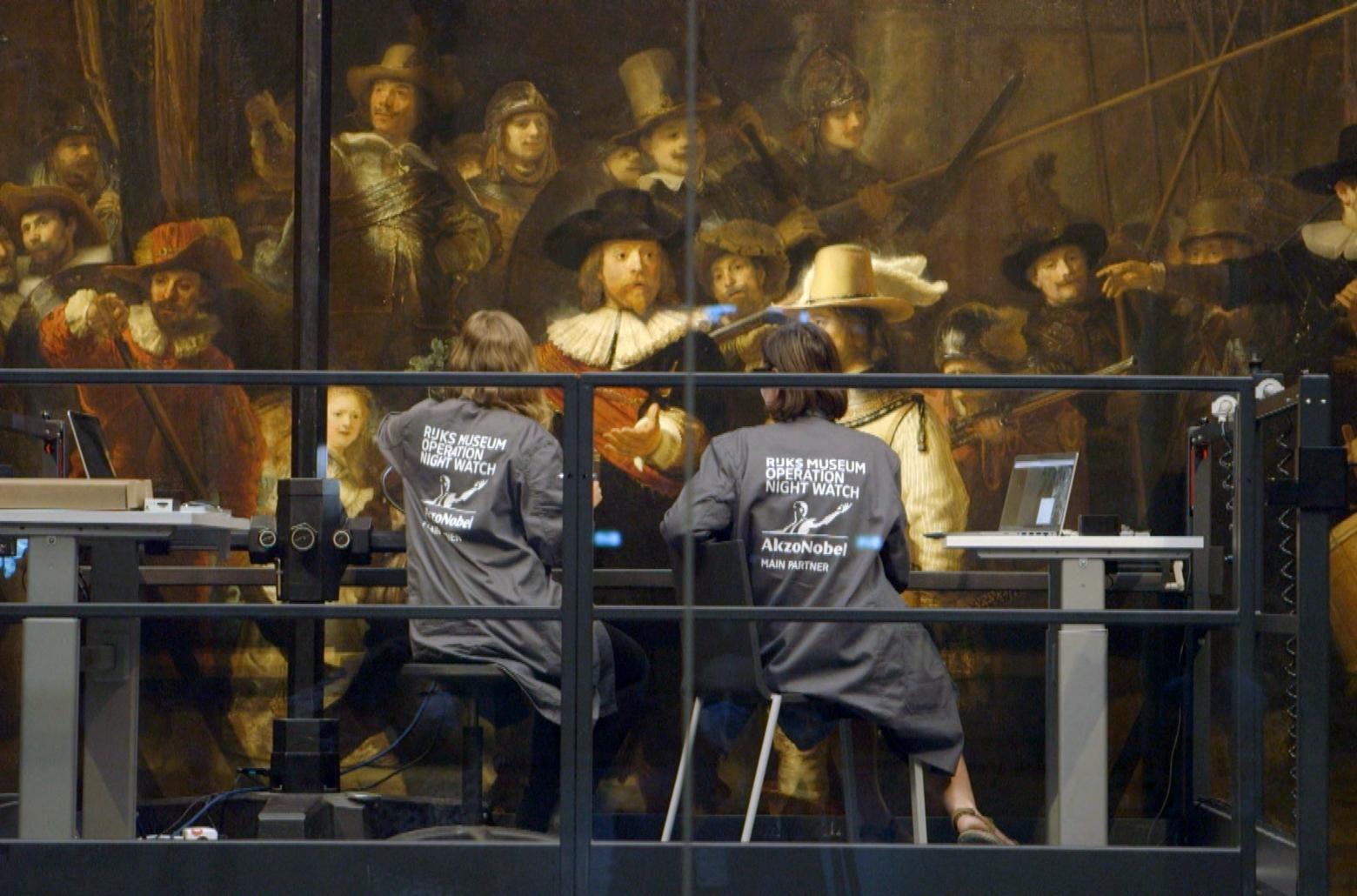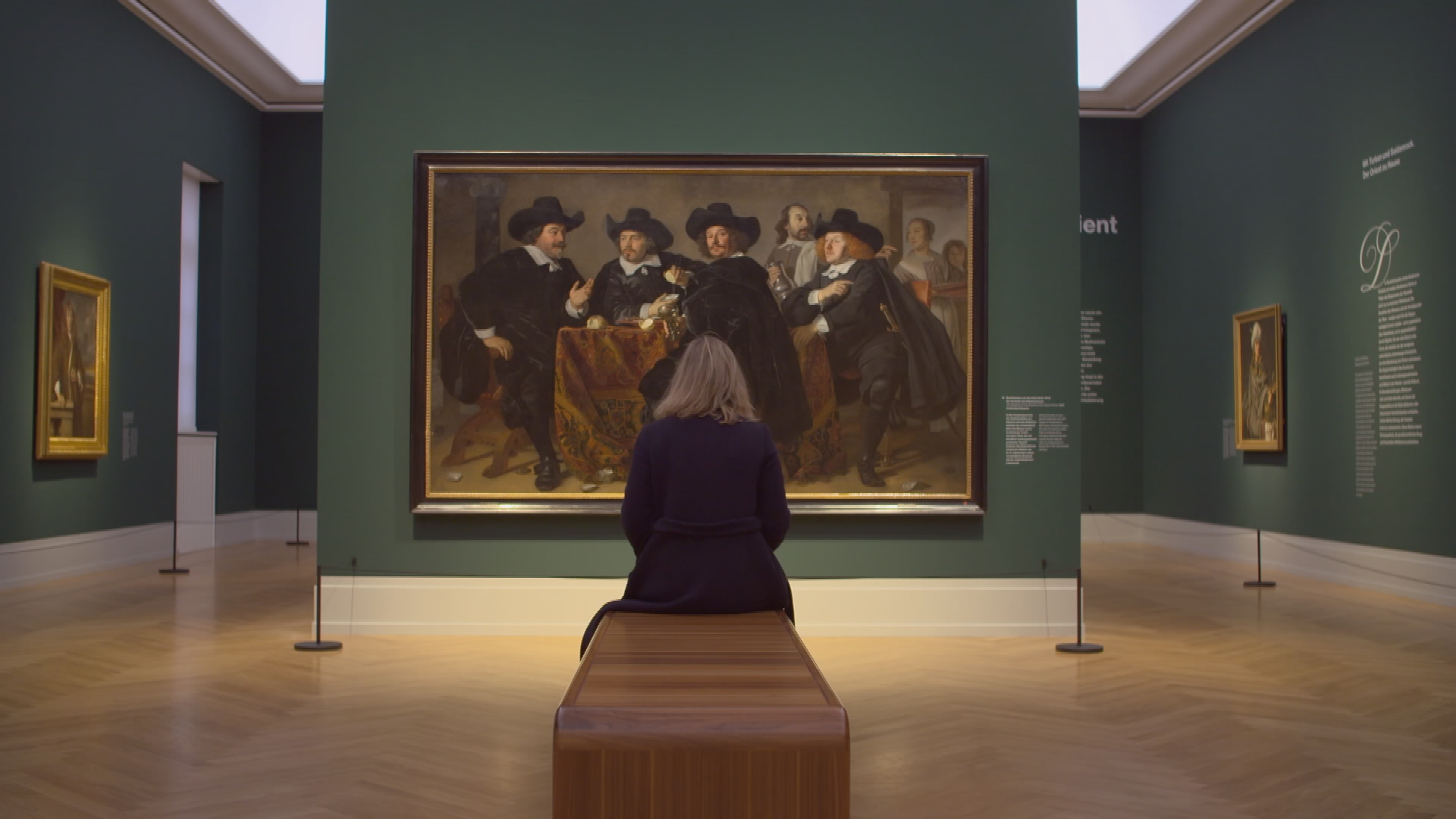Alongside Rembrandt and Vermeer, Frans Hals is one of the key figures of 17th century Dutch art. But unlike his contemporaries, who tended to paint gloomy or pensive pictures, the Haarlem artist was entirely devoted to joy. Frans Hals painted people who could barely conceal their lust for life – at a time when it was frowned upon to show teeth. The film explores the role that laughter plays in the art of Frans Hals and in our lives today. GET YOUR TICKETS HERE
IN PRODUCTION: REMBRANDTS HEIRS
Rembrandt has strongly influenced art over centuries. Not only through his masterpieces but also through his work as a teacher. The knowledge he taught his students was adopted by them. They incorporated it into their own art and passed it on to those who came after them. In this way, the universal messages inscribed in his paintings have also been passed on. Art that directly or indirectly bears Rembrandt‘s influence can therefore be found in every epoch of art history – until today. But why was Rembrandt such a great teacher for human kind? What makes the old master still so relevant in the 21st century? And what can we still learn from him today? Together with the world‘s largest collector of Rembrandt and his pupils, Thomas Kaplan, contemporary artists and art experts, the film goes on the trail of Rembrandt – from Leiden to Amsterdam, to London, Paris and New York – and tells the story of the great master and those who followed him. Script & Direction: Frauke Schlieckau. A Bottega Berlin Production. In cooperation with The Leiden Collection.
PRESS: MONOPOL STREAMING TIPS. ART FILMS WORTH WATCHING IN FEBRUARY.
The art magazine Monopol has this to say about “Rembrandts Century: Art, Market and Business”: “For her documentary, the film’s maker Frauke Schlieckau looked over the shoulder of Rembrandt collector Thomas Kaplan, among others, as he opened a box containing the smallest of Rembrandt’s paintings. She zoomed in on paintings that are usually hidden from public view. She also spoke with Baukje Coenen of Sotheby’s about the (metaphorical and literal) complexity of the paintings – and about how restorers bring their secrets to light. The result is a tribute to the Dutch golden boy, sustained by the interviewees’ love of his paintings. It’s a film that paints a picture of the era that produced Rembrandt, contrasts him with other painters of his own time like Jan Vermeer, and illuminates what is still admired about him today.”
ON SCREEN: REMBRANDT, HABIBI!, 3sat Kulturzeit, 06.05.2021, 19.00pm
In her podcast “Rembrandt, habibi,” which is well worth listening to, journalist Amina Aziz examines the Dutch Baroque painter and his contemporaries from a postcolonial perspective. Together with her, we visit the exhibition “Rembrandt’s Orient” to look at the art of the beloved painter and his contemporaries with irreverence, rather than reverence, for a change. For Rembrandt and his colleagues, artists at the center of a brutally expanding colonial regime, created a strange, fictional image of the Orient with their paintings. How should, how must we deal with it today? A Bottega Berlin production for 3sat Kulturzeit.
ON SCREEN: REMBRANDT, HABIBI!, 3sat Kulturzeit, 06.05.2021, 7pm
In her podcast “Rembrandt, habibi,” which is well worth listening to, journalist Amina Aziz examines the Dutch Baroque painter and his contemporaries from a postcolonial perspective. Together with her, we visit the exhibition “Rembrandt’s Orient” to look at the art of the beloved painter and his contemporaries with irreverence, rather than reverence, for a change. For Rembrandt and his colleagues, artists at the center of a brutally expanding colonial regime, created a strange, fictional image of the Orient with their paintings. How should, how must we deal with it today? A Bottega Berlin production for ZDF aspekte.
IN PRODUCTION: REMBRANDT, HABIBI!
In her podcast “Rembrandt, habibi,” which is well worth listening to, political journalist Amina Aziz examines the Dutch Baroque painter and his time with a postcolonial eye. For ZDF Aspekte, we join her on a visit to the exhibition “Rembrandt’s Orient” to look at the art of the public favorite and his contemporaries with irreverence, rather than reverence, for a change. For Rembrandt, artist at the center of a brutally expanding colonial regime, created a strange, fictional image of the Orient with his paintings. How should, how must one deal with it today? A Bottega Berlin Productions for ZDF Aspekte.







